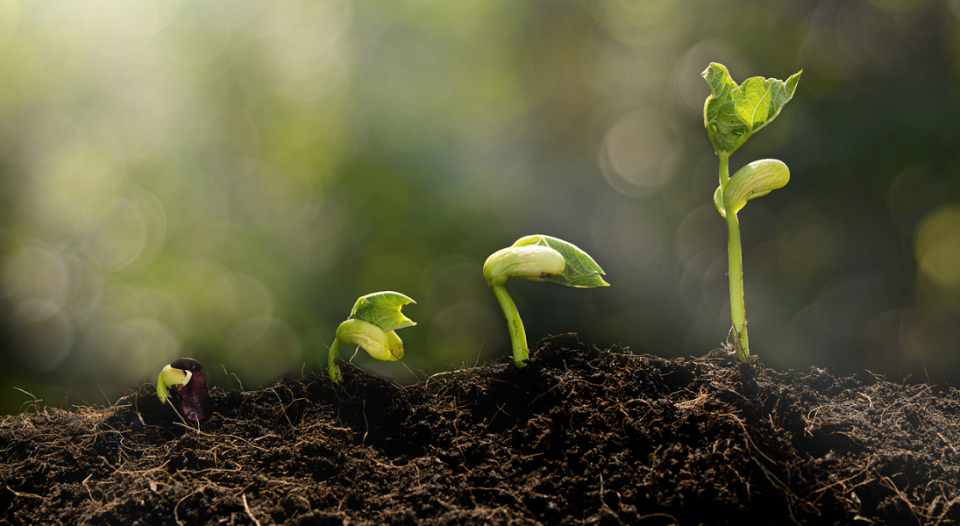At night in my tent during a weeklong bicycle tour on the Blue Ridge Parkway with old friends, I re-read (with a headlamp) parts of Pilgrim at Tinker Creek, Annie Dillard’s wise, yearlong collection of observations along a small creek near Roanoke, Va.
One of my favorite scenes in the book describes her childhood compulsion of hiding pennies at the base of sycamore trees, then drawing large arrows with sidewalk chalk from both directions. The arrows led to the coin with words like “SURPRISE AHEAD” or “MONEY THIS WAY.” Dillard wrote: “I was greatly excited at the thought of the first lucky passer-by who would receive in this way, regardless of merit, a free gift from the universe.”
•••
Early in Mark’s Gospel, in several short teachings about the nature of God’s present and coming kingdom, Jesus uses various agricultural metaphors. One of my favorites describes how seeds sprout and grow in mystery, without much human assistance beyond the sowing (Mark 4:26-29). Jesus offers commentary on the process: “The earth produces of itself.” Embedded in this phrase is an interesting Greek verb: automate, from which we get our English word “automatically.”
Jesus said the coming kingdom is unconditionally inevitable. This parable is among the most radical in any Gospel, for Jesus seems to announce the advent of the kingdom in its fullness whether we work toward such a reality or not—perhaps a rather serious blow to the human ego.
This isn’t to say Jesus feels humans are expendable or that ambition and initiative aren’t important. He does, however, desire awareness of our relative place, inviting us over and again to consider how much of this life is sheer gift to be noticed and enjoyed. Someone once observed that authentic worship requires learning to pay attention—celebrating the joy of being alive on a planet filled with such prolific and mysterious diversity.
(Jesus) does, however, desire awareness of our relative place, inviting us over and again to consider how much of this life is sheer gift to be noticed and enjoyed.
One of the most powerful questions in the Bible comes early (Genesis 3:9), just after the first humans blow it in the garden. “Where are you?” God asks. This isn’t a question of geographical location; the Lord knows their whereabouts. It’s a question testing theological awareness.
•••
There’s sometimes a functional atheism afoot in our churches, centering upon a conviction that nothing of real substance happens in the world unless we make it happen, often summarized in the slogan: “The Only Hands God Has Are Our Hands.” We believe in God, but if you really want something done, well, you’d better do it yourself.
Wonderful things happen in this old parable from Mark while the farmer is sound asleep, sawing logs, totally unable to “make a difference” or “change the world.” The seed sprouts and spreads while he does nothing to assist its growth. George MacDonald (1824-1905), a Scottish pastor and poet, wrote: “Sleep is God’s contrivance for giving us the help he cannot get into us when we are awake.”
Lots of great things occur while we’re sleeping, far beyond our ability to control or produce: planets and stars move across the night sky; mountain laurel bursts into bloom, resembling a hill full of snow; babies are conceived in a union never fully removed from mystery; schools of fish bore through tidal pools looking for a midnight snack; and the Spirit searches the heart of the guilty, ready to offer far more in grace than one could ever expect. All after dark while we’re snoozing.
I suppose, given a piece of chalk, each of us might draw arrows to very different astonishing and grace-filled things. Being a disciple of Jesus will always mean retaining the excitement of children who urgently lead climate-controlled adults like me outside my shell (and outside, in fact) with an invitation to notice all the surprises hiding in plain view that God has authored around every bend in the trail. Perhaps that’s why Jesus once declared the impossibility of entering the kingdom of God unless we all become like children.





